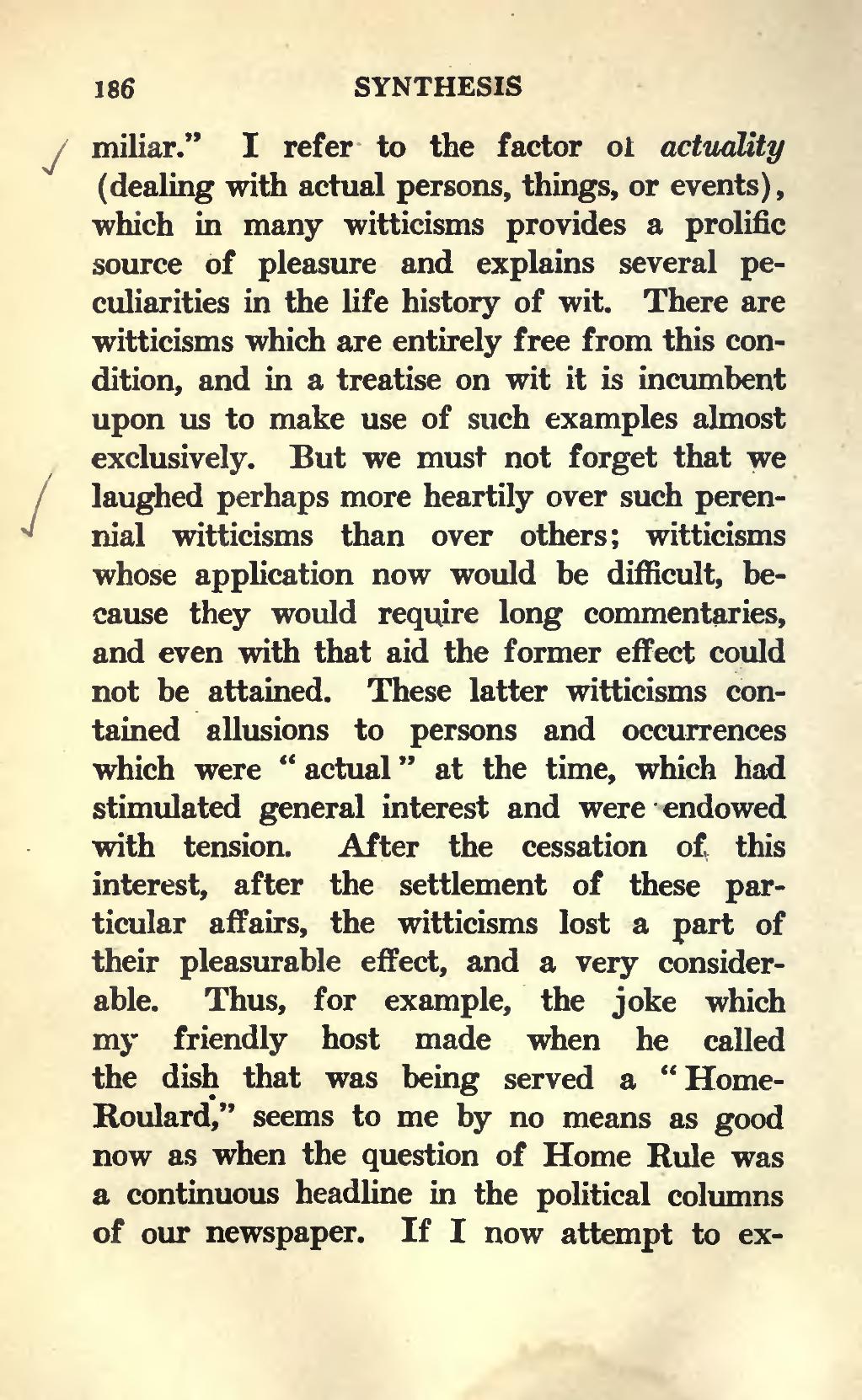I refer to the factor of actuality (dealing with actual persons, things, or events), which in many witticisms provides a prolific source of pleasure and explains several peculiarities in the life history of wit. There are witticisms which are entirely free from this condition, and in a treatise on wit it is incumbent upon us to make use of such examples almost exclusively. But we must not forget that we laughed perhaps more heartily over such perennial witticisms than over others; witticisms whose application now would be difficult, because they would require long commentaries, and even with that aid the former effect could not be attained. These latter witticisms contained allusions to persons and occurrences which were “actual” at the time, which had stimulated general interest and were endowed with tension. After the cessation of this interest, after the settlement of these particular affairs, the witticisms lost a part of their pleasurable effect, and a very considerable. Thus, for example, the joke which my friendly host made when he called the dish that was being served a “Home-Roulard,” seems to me by no means as good now as when the question of Home Rule was a continuous headline in the political columns of our newspaper. If I now attempt to express
Page:Freud - Wit and its relation to the unconscious.djvu/202
This page needs to be proofread.
